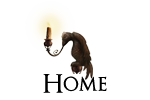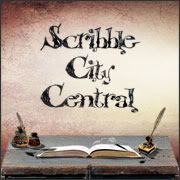Time for the second Mythic Interview Friday--and you're in for another treat. It's strange to think that I first met Mary Hoffman nearly 30 years ago when I was the young and enthusiastic editor of the first Yellow Banana Books. I worked on Beware, Princess which she wrote for the series (and which, if I recall correctly, was the first book illustrated by one Chris Riddell, then fresh out of art college). In those days, I trembled in the face of Mary's towering reputation as author, critic and journalist (I still do), but we have got to know each other well over the years, and I am proud to call her my friend. Mary's Stravaganza sequence has become one of my 'must-read' recommendations for any teenager who likes a fabulous mix of adventure, romance and magic. I recently read the latest--City of Ships--which came out in March 2010 and is just as wonderful as its predecessors. If you haven't come across these books yet, go and buy them at once! Now, enough from me--here are Mary's answers to my seven mythically-minded questions. I love how different they are from Caroline Lawrence's set last Friday. That's what this interviewing business is all about.
1. Do you think that the retelling of myths is important or relevant for the children of today? Why should they care about some “dry old stories” which come from ancient or forgotten cultures they might never even have heard of?
It’s absolutely vital! And what’s with this “dry” nonsense? These are stories as juicy as any you are likely to find. I once had a most successful session with quite disaffected secondary students in a rough East End school, when I just walked up and down the classroom telling them Greek myths and legends. They then wrote their own contemporary versions and had Phaeton stealing his dad’s Merc, for instance. They agreed that the sort of thing you came across in the myths could be found any day of the week in soaps like EastEnders – doubtful parentage, incest, adultery and what they called “bad parenting”!
2. What age were you when you came across your first myth or myths? Tell us how you felt then about the myths you first discovered. Did you love them or hate them? Did they scare you, excite you—or were you indifferent? What kind of myths were they? Greek? Norse? Native American? Celtic? Or from another culture entirely? Were they in a book you read? Or did you hear them as oral storytelling from someone else?
I was really quite small because I remember my next sister up, who is seven years older than me, reading me the story of Baldur the Beautiful from the Norse myths. It's one of the central Norse myths. Baldur the god (roughly equivalent to Apollo) has been rendered almost entirely invulnerable to weapons because his mother has made all the plants and minerals in the world promise never to harm him. But of course there is one she has forgotten (as in the legend of Achilles). Hodur, Baldur’s blind brother is sad because he can’t join in the hurling of weapons at Baldur in the hall of the gods. The trickster god, Loki, who is always left out of everything in Valhalla, fashions Hodur a spear out of mistletoe wood (of course that was the plant their mother had left out) and helps him to aim it. Baldur is killed instantly. And Hodur is devastated. It made a huge impression on me, hard to describe – a feeling of mystery, grandeur and tragedy which I find irresistible to this day.
3. Looking back, what is your favourite myth of all time, from any culture? And why would you choose it?
Well, the one above is a strong candidate! But really I love all such stories except the Mayan and Aztec ones, which feel too alien to this European. Of the Greek ones I think Persephone being kidnapped by Hades and kept under the earth for six months of the year, because she ate six pomegranate seeds.
4. Who is your most loved mythical hero or heroine, and what made you feel that way about them?
I’ve always loved Artemis, even though she is the goddess of the hunt and I am a vegetarian. I love her association with the moon. All moon goddesses appeal actually – Isis and Astarte too.
5. Is there a mythical beast you are particularly fond of? If so, which one?
My first published book, White Magic, was about a unicorn, so I think I have to choose that. Not a soppy, Disneyfied beast skipping about through flowers and rainbows but a sacred animal who can detoxify polluted waters; we need him now in our tainted world.
6. How have myths had an influence on your writing, if at all?
Myths and legends and folk and fairy tales and Bible stories all influence everything I write and think every day of my life.
7. Finally, if you could choose to be the demigod child of any one mythical god or goddess, which one would it be? Which power would you like to inherit from them—and what would you do with it?
I wouldn’t mind having the Dagda for my father! He was a Celtic god who doesn’t really have an equivalent in the Greek or Norse pantheons. He was the god of hospitality, which is important to me, and he had a magic cauldron – my kind of guy. If I had been able to inherit a power from him I should like it to have been endless expansive hospitality.
More about Mary:
Mary Hoffman is a published writer of over 90 books, mainly for children and teenagers, including bestsellers like the Grace series and the aforementioned Stravaganza sequence for older readers. With her 'critic hat' on, she founded and ran the review journal, Armadillo, for ten years and reviews regularly for the national press. She is also on an international "Comitato Scientifico" in Florence and writes articles about the UK children's publishing scene for Liber magazine. Mary Hoffman won a scholarship to James Allen’s Girls’ School in Dulwich, which she describes as “an exercise in punctuation in itself.” From there she went to the University of Cambridge to study English at Newnham College and then spent two years studying Linguistics at University College London. Since 1998 she has been an Honorary Fellow of the Library Association for her work with children and schools. She worked at the Open University for nearly five years, contributing to courses for teachers on reading, language and children’s literature. For eighteen years she was Reading Consultant to BBC Schools TV’s Look and Read series and wrote the teaching scripts. Mary lives in Oxfordshire.
Mary's website is HERE, her blog is HERE, her Facebook Fanpage is HERE, and she tweets as @MARYMHOFFMAN HERE
Friday, 9 April 2010
Mythic Interview Friday: Number 2 - Mary Hoffman
Labels:
Chris Riddell,
Lucy Coats,
Mary Hoffman,
Mythic Interview Fridays,
myths
Subscribe to:
Post Comments (Atom)

















7 comments:
Great interview - hugely inspiring - I loved Mary's story about the children in the classroom, so brilliant to be able to bring myths and legends into today. Thanks to both of you!
Yes--I loved that story too, Nicky, and also Mary's choice of the Dagda. He is not well enough known, and he should be. I first came across him in Pat O Shea's Hounds of the Morrigan--and have loved him ever since.
Thank you, Lucy! I realise that although I nominated Artemis I actually voted for Dionysus over on my Olympians poll (which has 7 hours left to run) on http://bookmavenmary.blogspot.com or follow Lucy's link.
Lucy herself will be joining me on my blog shortly to talk about the poll results and her series on Greek myths. It's a small world!
Love the story about the school - bet those kids weren't half as disaffected afterwards.
Great interview, both :)
Mary's Olympians poll has really got me thinking about why I like or dislike certain Greek deities. Interesting that Zeus and Hera are bottom of the poll--and yet are king and queen of the Gods.
Great interview, thank you both of you :-) And, Mary, you DID inherit that boundless hospitality trait!
She did indeed, Anne--and is a true Daughter of the Dagda.
My Olympian musings are now up at the Book Maven blog if you'd like to see what I think of Hera and Zeus--and all the others including the winner--Athene. http://bookmavenmary.blogspot.com/2010/04/triumph-of-athene.html
Post a Comment